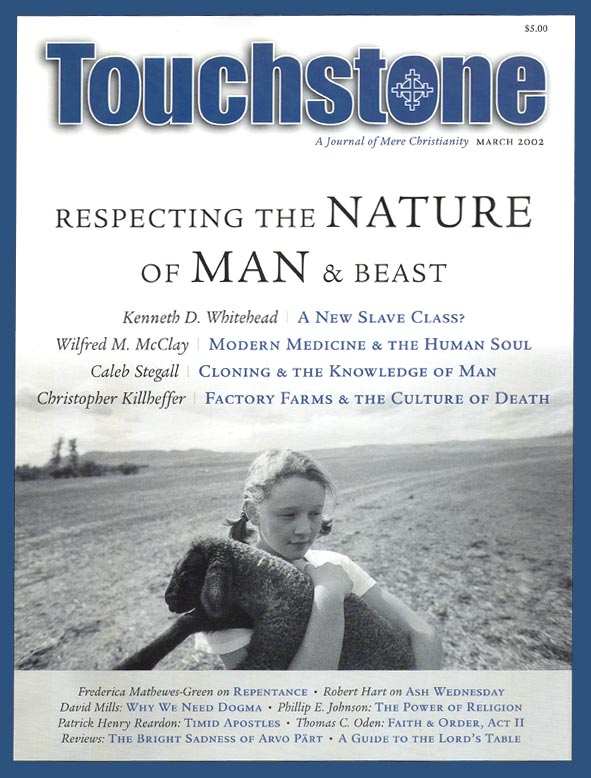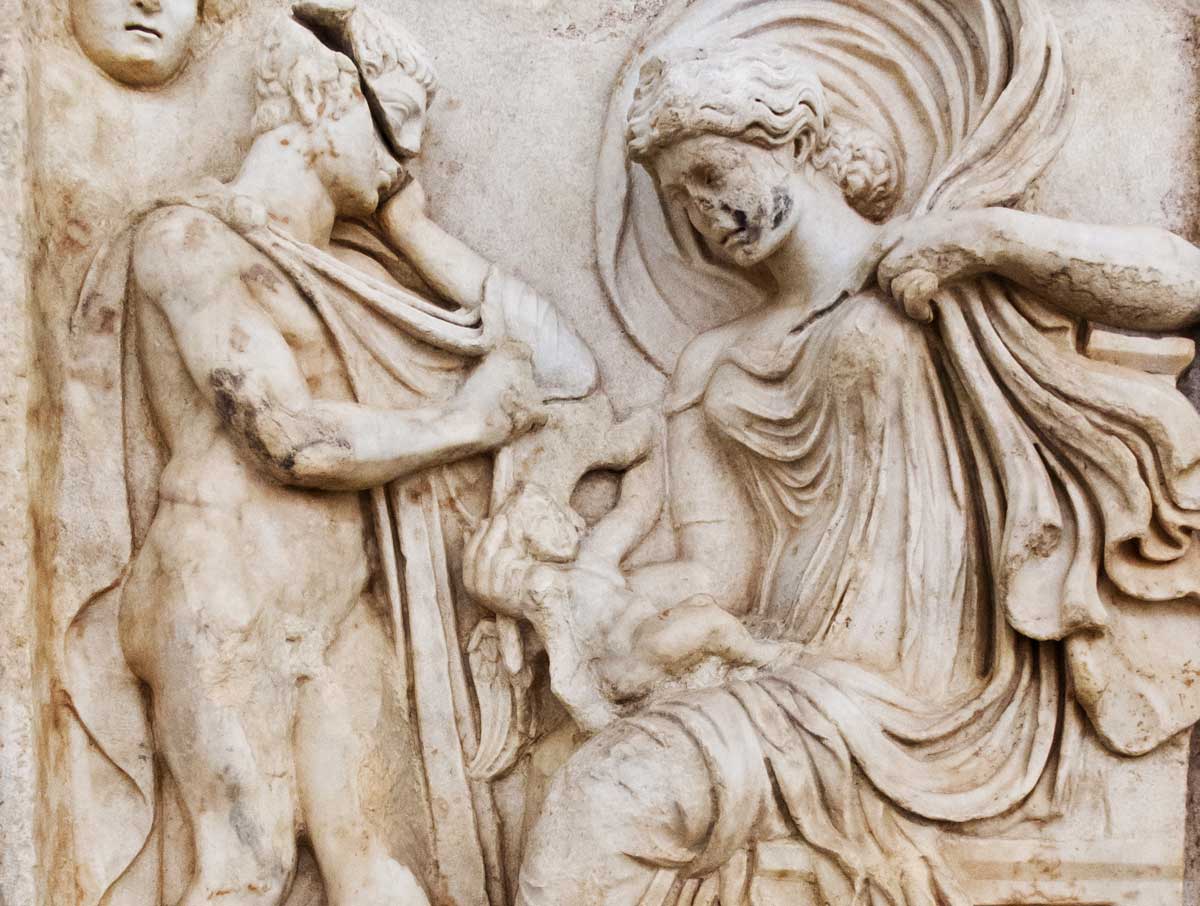Feature
Mastery’s Shadow
Wilfred M. McClay on Modern Medicine & the Human Soul
The modern world prides itself on its freedom from the past’s unreflective orthodoxies. But of course it has accumulated quite an impressive stock of its own. None is more settled than our unquestioned belief in the rightness and efficacy of using modern science and medicine to prolong human life—so long, of course, as the life in question is deemed to be of the requisite “quality.”
A Settled Matter
One could almost hear the machinery of this sturdy piece of orthodoxy clanking into place during the recent debate over federal funding for embryonic stem-cell research. Only let an accredited research scientist stand before us and float the proposition that a procedure, however morally troubling, might hold some promise for the cure of diabetes, cancer, Parkinson’s disease, dementia, herpes, or the common cold, and the matter is settled. The American public wants it.
They are only too happy to roll over and give the man in the lab coat whatever he wants, especially if it is no skin off their own blastocysts. The thought that such scientists, like other human beings, might have a limited perspective on the matter, and might occasionally act in self-interest, seems never to occur to our famously skeptical journalists.
There is, of course, real force behind the scientists’ appeals. No one who suffers from an incurable condition, or has seen a loved one suffer and die from one, can be immune to them. It is in our nature to cherish life. Even those of us who are convinced that a better existence awaits us beyond the grave nevertheless cling to earthly existence. Those who hold no such belief, or hold it only tenuously, are sure to cling to life all the more intensely. And it is an undeniable fact that remarkable medical breakthroughs occur all the time, so the hope for cures cannot be dismissed as a vain one.
Nor does it help matters that we live in an era in which shameless appeals to sentimentality and emotionalism have become the principal means by which public opinion is molded. And yet it would be cruel, even inhuman, not to be at least slightly moved by the pleas of celebrity sufferers such as Christopher Reeve and Michael J. Fox. There go I—so we think to ourselves—or someone I know, or might have known. Who could be so heartless as to deny them hope?
Let it be stipulated, then, that modern medicine’s achievements have been remarkable and promise to become even more so in the years to come. Yet it takes no prophetic genius to see that medicine can have no cure for the unintended moral and spiritual consequences its progress will surely engender. In the wake of the stem-cell controversy, much thought is being given to the moral trade-offs between the promise of medical progress and the multifaceted cannibalization and degradation of existing life. This is surely the bioethical question of the hour.
But consider for a moment a different concern, one that even the most implacable opponents of embryonic stem-cell research did not express. Let us suppose that even the cannibalization issues can be solved—that, for example, stem cells can be extracted from adults, placental tissues, umbilical cords, and such, without recourse to the destruction of embryos—and that all other related issues can be satisfactorily resolved.
Would the progress of modern medicine be thereby rendered entirely unproblematic? Might it not rather be the case that the very meaning of suffering and death, and their place in the economy of the human soul, are in the process of being cancelled, in ways that may be hugely consequential to us?
I am not suggesting that we all should want to rush back to a world without anesthesia. And I have no idea what it would mean to be an “enemy of the future,” unless one first posits that the future is foreordained. No, I am merely pointing to an inescapable irony at work in the progress of modern medicine, and to the fact that the high cost of medical care may be the least of the prices we are going to be paying for it.
Wilfred M. McClay holds the SunTrust Chair of Humanities at the University of Tennessee at Chattanooga, and is the author of The Masterless: Self and Society in Modern America (North Carolina) and A Student's Guide to U.S. History (ISI Books). He is a member of the Presbyterian Church, U.S.A.
subscription options
Order
Print/Online Subscription

Get six issues (one year) of Touchstone PLUS full online access including pdf downloads for only $39.95. That's only $3.34 per month!
Order
Online Only
Subscription

Get a one-year full-access subscription to the Touchstone online archives for only $19.95. That's only $1.66 per month!
bulk subscriptions
Order Touchstone subscriptions in bulk and save $10 per sub! Each subscription includes 6 issues of Touchstone plus full online access to touchstonemag.com—including archives, videos, and pdf downloads of recent issues for only $29.95 each! Great for churches or study groups.
Transactions will be processed on a secure server.
more on medicine from the online archives
more from the online archives

28.3—May/June 2015
Of Bicycles, Sex, & Natural Law
Describing Human Ends & Our Limitations Is Neither Futile Nor Unloving by R. V. Young
calling all readers
Please Donate
"There are magazines worth reading but few worth saving . . . Touchstone is just such a magazine."
—Alice von Hildebrand
"Here we do not concede one square millimeter of territory to falsehood, folly, contemporary sentimentality, or fashion. We speak the truth, and let God be our judge. . . . Touchstone is the one committedly Christian conservative journal."
—Anthony Esolen, Touchstone senior editor










